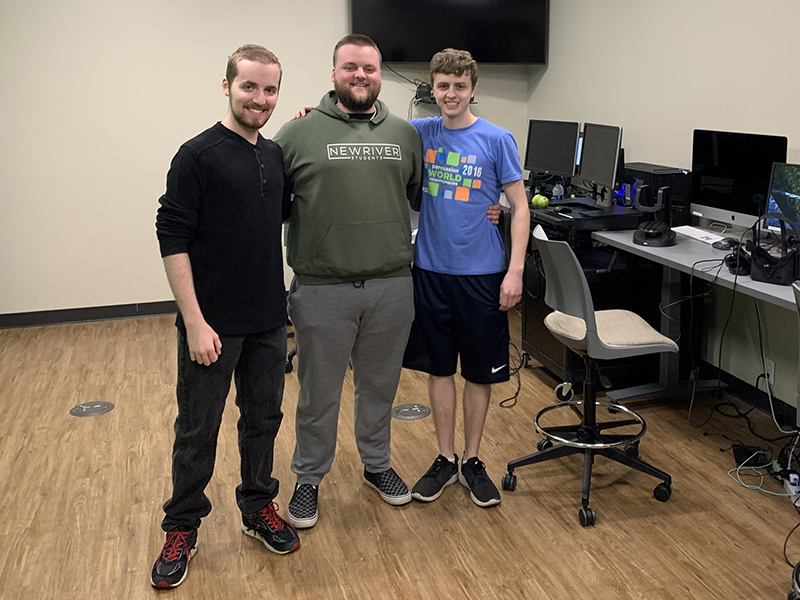Bachelor of Science in Digital Entertainment Technology
Enter an exciting field with a digital media degree and design for the digital world.
Creating digital content for video games, movies, and online and mobile apps can be a challenging and exciting experience. This portfolio-driven entertainment technology degree program will equip you with tools needed to embark on an exciting freelance career or to pursue graduate studies in cinematics, game or level design or AR/VR creation.
The Bachelor of Science in digital entertainment technology (BS) curriculum can guide you toward roles in game design, mobile development or cinematics. As a DET student, you’ll learn about the entire creative process – from concept and design, to scripting and production. You’ll also explore theories in art, design and storytelling, and hone your career focus as you concentrate in one of three exciting areas.

Student-designed VR game accepted on Steam
In November, a virtual reality game designed by a three-student team was accepted for distribution by Steam.

Why study Digital Entertainment and Technology at ACU?
While earning an entertainment technology bachelor’s degree, you will be taught by high-quality, Christian faculty who possess significant industry experience and are involved in active research. Additionally, the business courses and experiential learning opportunities will enhance your curriculum. Students pursuing digital media degrees can take courses in entrepreneurship, management and marketing to create a career path towards business ownership.
What can you do after graduation?
- Web development
- Mobile app development
- Game development
- User interface/user experience
- Special effects
- Quality assurance

Experiential learning opportunities
Experiential Learning brings the classroom to life through immersive, real world opportunities. Students participate to build their resumes, learn about career opportunities and to build critical skills for success in the marketplace. ACU’s College of Business and Technology offers numerous diverse and relevant learning opportunities including:
- DET Club
- Join your peers and faculty each week as you explore emerging technology in the world of digital entertainment technology.
- Film Fest
- If the film industry is something that interests you, ACU’s FilmFest is a great way to get involved even while in college. Our student film festival is designed to give you a creative outlet at ACU and provides inroads into the industry through alumni and industry professionals who serve as judges for the event.
- L.A. Film School
- Embark on an exciting semester in Los Angeles learning about the film industry and making great connections while participating in an exciting internship.
Accreditation
ACU’s College of Business Administration educates business and technology professionals for Christian service and leadership throughout the world. The college offers AACSB and ABET accredited programs, including nine undergraduate business and technology majors, four minors, a Master of Accountancy, and two online graduate programs (an MBA and a Master of Science in Management). The college includes two centers (Griggs Center for Entrepreneurship and Philanthropy and Lytle Center for Faith and Leadership) and three academic units (Accounting and Finance Department, Management Sciences Department and School of Information Technology and Computing), in addition to our partnership with ACU-Dallas to deliver online business education.
ACU's School of Information Technology and Computing (SITC) delivers a high-quality undergraduate education in order to prepare students to have the necessary skills to become the next software engineers, computer scientists, game designers, security analysts and more.
Degree Details
Tracks
Digital Design
Game Development
Film & Media Production
Required Hours
*Based on track selection
University Requirements: 56 credit hours + Major Requirements: 66 credit hours (Choice of 3 tracks) + Electives: 6 credit hours = Total Required: 128 credit hours*
Example Coursework
Department
Application Deadlines
Regular: February 1st
National Candidates: May 1st
Early Action: November 1st

